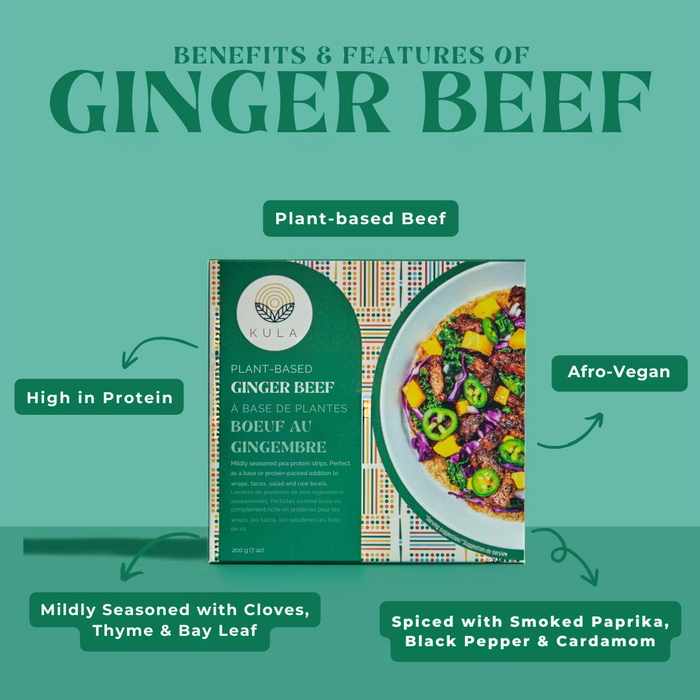Uncovering the Benefits of Plant Based Dishes in Supporting Healthy Food Choices
Plant-based dishes provide numerous benefits that can boost healthy consuming habits. They prioritize nutrient-dense ingredients, adding to general well-being. These meals are rich in vital minerals and vitamins, which can lead to enhanced energy levels and digestion. Additionally, they play a substantial function in weight monitoring and persistent disease prevention. Nevertheless, the ramifications extend beyond personal health and wellness, touching on ecological sustainability. Checking out these aspects reveals an engaging case for incorporating extra plant-based foods into daily diet regimens.
Comprehending Plant-Based Diet Regimens
What specifies a plant-based diet regimen? A plant-based diet mainly contains foods derived from plants, consisting of veggies, fruits, grains, seeds, and nuts. While it emphasizes plant foods, it is not always vegetarian or vegan; some people may include small quantities of pet products. The core concept revolves around focusing on plant foods for their dietary benefits and ecological sustainability. This diet regimen encourages the intake of entire, minimally refined foods, often bring about a raised consumption of vital nutrients. Additionally, plant-based eating promotes cooking creative thinking, as individuals discover varied dishes and flavors. Inevitably, a plant-based diet can be adjusted to fit various lifestyles and preferences, making it an adaptable option for those looking for to integrate more plant foods right into their dishes.
Health And Wellness Advantages of Plant-Based Foods
A plant-based diet offers a wide range of health and wellness benefits that can enhance total well-being. Research indicates that people following this diet regimen typically experience reduced dangers of persistent conditions, such as heart disease, diabetes, and particular cancers. Rich in anti-oxidants, vitamins, and minerals, plant-based meals support immune function and promote mobile health. These diet regimens are generally high in nutritional fiber, which helps digestion and aids keep healthy and balanced cholesterol levels. The incorporation of entire foods, such as fruits, veggies, legumes, and whole grains, adds to improved power degrees and psychological clearness. Additionally, the anti-inflammatory buildings located in numerous plant-based foods can help lower inflammation in the body, advertising far better cardio and joint health.
Effect On Weight Management
The impact of plant-based dishes on weight monitoring can be significant as a result of their nutrient density and lower calorie intake. These dishes frequently give important vitamins and minerals while decreasing vacant calories, advertising healthier eating behaviors. Consequently, people may discover it simpler to lose or keep weight with a plant-based diet plan.
Nutrient Thickness Conveniences
While many diet plans concentrate on calorie restriction, the idea of nutrient thickness supplies a more alternative strategy to weight monitoring. Nutrient-dense foods are rich in vitamins, minerals, and antioxidants while being reduced in calories. This permits individuals to consume larger parts without surpassing their caloric demands. Plant-based dishes, which frequently include fruits, vegetables, entire grains, and legumes, exemplify nutrient density. These foods not just support weight administration yet additionally promote satiation, lowering the probability of over-eating. Additionally, a high consumption of nutrient-dense foods can cause enhanced metabolic health, as they provide the necessary nutrients for peak physical feature. Ultimately, focusing on nutrient thickness can help with healthier consuming patterns and add to lasting weight monitoring strategies.
Lowered Calorie Consumption
Lowered caloric intake plays a considerable function in efficient weight monitoring, as it directly affects a person's energy equilibrium. Plant Based Beef. Plant-based meals are usually lower in calories while being abundant in essential nutrients, making them an ideal choice for those looking for to decrease calorie consumption without giving up nourishment. By including more fruits, vegetables, entire grains, and vegetables, individuals can appreciate larger portion sizes that advertise satiation. This method not just aids in weight reduction however also fosters sustainable consuming behaviors. Furthermore, plant-based diet regimens usually lower the intake of processed foods high in included sugars and unhealthy fats, which can add to excess calorie intake. Ultimately, a focus on plant-based dishes can sustain healthier weight monitoring approaches and long-term wellness
Minimizing the Threat of Persistent Illness
Integrating plant-based meals right into one's diet regimen can greatly reduce the threat of persistent illness. Various studies demonstrate that diets abundant in fruits, veggies, entire grains, and beans are related to minimized incidences of cardiovascular disease, diabetic issues, and specific cancers. The high fiber material of plant-based foods adds to far better digestion health and wellness and improved cholesterol degrees, while antioxidants and phytochemicals located in these foods might help fight swelling and oxidative stress and anxiety. In addition, plant-based diets are typically lower in hydrogenated fats and cholesterol, additional advertising cardio wellness. By prioritizing plant-based choices, individuals can improve their general health and produce a healthier lifestyle that alleviates the possibility of establishing persistent health problems, therefore cultivating a much more resistant body.
Ecological Sustainability of Plant-Based Eating
How can plant-based consuming add to ecological sustainability? Changing to a plant-based diet significantly minimizes the environmental effect related to food production. Livestock farming is a leading root cause of deforestation, greenhouse gas exhausts, and water exhaustion. By taking in extra plant-based foods, people can decrease their carbon footprint and save all-natural sources. Additionally, plant-based diet plans typically need much less power and land contrasted to meat manufacturing, making them a much more lasting choice. The farming of crops for straight human intake is usually extra efficient, as it gets rid of the requirement for feed conversion. By embracing plant-based consuming behaviors, society can promote biodiversity, mitigate climate change, and promote a much healthier world for future generations. Inevitably, this modification sustains both human wellness and ecological sustainability.
Easy Ways to Include Plant-Based Foods
Embracing a plant-based diet not just benefits the setting yet additionally provides numerous opportunities for people to improve their day-to-day dishes. One reliable way to begin is by address slowly changing pet items with plant choices, such as making use of almond milk rather of milk. Including much more veggies into different meals can additionally be transformative; including spinach to shakes or utilizing cauliflower rice can elevate dishes. Preparation once a week food selections that highlight vegetables, grains, and seasonal produce advertises selection and lowers stress throughout meal preparation. Furthermore, checking out local farmers' markets can over here influence creativity and provide fresh active ingredients. Basic modifications, like selecting entire grain bread or attempting plant-based treats, can make a substantial effect on healthier consuming behaviors while promoting a greater recognition for plant foods.
Delicious Plant-Based Meal Concepts to Attempt

Checking out delicious plant-based dish ideas can raise one's culinary experience while advertising health - Plant Based Chicken. Quick and easy dishes featuring nutrient-packed active ingredients supply a selection of alternatives for hectic timetables. In addition, delicious international dishes can introduce amazing preferences and textures to plant-based consuming
Quick and Easy Recipes
Many individuals looking for much healthier food options are transforming to easy and quick plant-based recipes that cater to a variety of way of lives and tastes. These recipes usually focus on minimal preparation time, making them easily accessible for busy routines. Simple alternatives such as quinoa salads, vegetable stir-fries, and chickpea wraps can be prepared in under 30 minutes, enabling nutritious meals without considerable food preparation. Components like fresh veggies, vegetables, and whole grains function as the foundation for these meals, offering convenience and taste. Additionally, numerous quick recipes can be tailored to suit individual choices, making it very easy to include seasonal produce or preferred seasonings. This approach not only promotes healthier consuming routines but likewise urges creative thinking in the cooking area.
Nutrient-Packed Components
Nutrient-packed components function as the foundation for tasty plant-based meals that not only please the taste yet additionally sustain overall health. Entire grains, such as quinoa and wild rice, offer crucial fiber and protein, while beans like chickpeas and lentils use rich sources of iron and folate. Incorporating lively vegetables, such as spinach, bell, and kale peppers, boosts meals with vitamins A, C, and K. Nuts and seeds add healthy fats, anti-oxidants, and additional healthy protein, making them optimal for snacks or toppings. Fruits, whether fresh or dried, include all-natural sweetness and crucial nutrients. By creatively incorporating these components, individuals can explore a variety of satisfying and nutrient-dense dishes that advertise well-being and keep power levels throughout the day.
Flavorful International Dishes
What makes worldwide cuisine so luring is its capability to display diverse flavors while welcoming plant-based ingredients. From the dynamic flavors of Indian chickpea curry to the fresh natural herbs of a Mediterranean tabbouleh, plant-based meals offer an international tapestry of tastes. Thai eco-friendly curry, rich with coconut milk and various vegetables, attracts attention for its aromatic blend. On the other hand, the smoky notes of a Mexican black bean taco, covered with avocado and salsa, supply a gratifying experience. Japanese ramen can be transformed with miso-based broth and an array of vegetables for a hearty meal. These instances illustrate just how worldwide dishes can inspire delicious, health-conscious eating, highlighting the adaptability of plant-based active ingredients in this website cooking traditions worldwide.
Regularly Asked Questions
What Prevail False Impressions Regarding Plant-Based Diet Regimens?
Typical misunderstandings about plant-based diets include ideas that they do not have enough protein, are overly limiting, or are costly - Plant Based Beef. Several additionally incorrectly think that plant-based eating is not appropriate for every age teams or way of lives

Just how to Change to a Plant-Based Diet Regimen Progressively?
To shift to a plant-based diet gradually, one should start by integrating more plant foods into dishes, changing animal products gradually, try out brand-new recipes, and concentrating on whole foods to assure balanced nutrition.
Are Plant-Based Dishes Pricey to Prepare?
The question of whether plant-based dishes are costly often develops. While some active ingredients can be costly, several cost effective alternatives exist. With careful preparation and seasonal options, preparing nutritious plant-based meals can be economical.
Can Kid Grow on a Plant-Based Diet regimen?
The inquiry of youngsters's thriving on a plant-based diet regimen has amassed attention. Research shows that with proper preparation, kids can prosper and satisfy dietary needs, benefiting from diverse nutrients located in fruits, vegetables, and whole grains.

What Are the Ideal Sources of Healthy Protein in Plant-Based Dishes?
The very best resources of protein in plant-based meals include vegetables, beans, lentils, quinoa, tofu, tempeh, nuts, and seeds. These choices offer necessary amino acids required for development, maintenance, and overall health without animal products. Rich in vitamins, minerals, and antioxidants, plant-based meals sustain immune function and advertise cellular health. Integrating plant-based dishes into one's diet can substantially reduce the threat of chronic conditions. Accepting a plant-based diet plan not only benefits the atmosphere however additionally uses many possibilities for people to improve their everyday dishes. Checking out delicious plant-based dish ideas can raise one's cooking experience while promoting health and wellness. Nutrient-packed active ingredients serve as the foundation for tasty plant-based meals that not only satisfy the palate but also support total health.